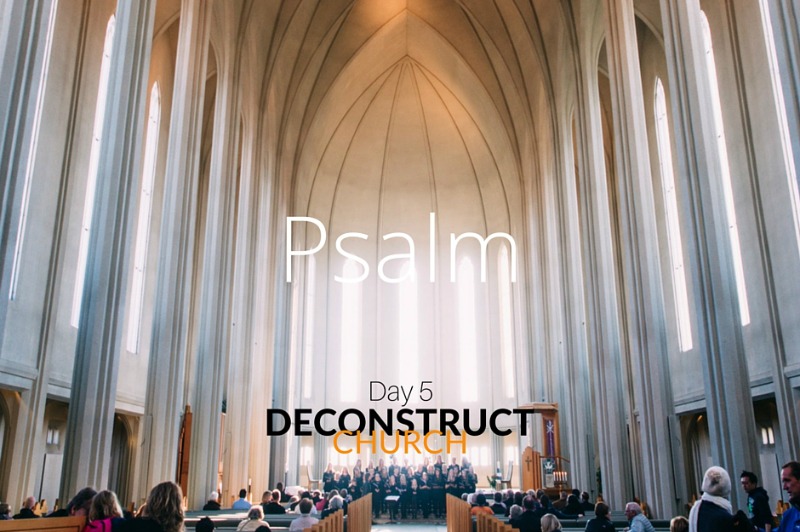The psalms are the odd duck of the Bible.
As a book of Scripture, they stick out. They are like the weird friend who is an exceptional pianist or the anti-social kid who can make exceptional speeches. The Psalms are remarkable reading. But they aren’t a story. They don’t tell the story of creation or the birth of Israel. They don’t tell of the fall of Jerusalem or the rise of the new Temple. And they are not written as a sustained story arc with obvious characters.
What the psalms are is poetry. Poetry speaking to the challenging themes and experience of a people.
These probably aren’t poems you had to memorize as children or the Robert Frost poems you see in anthologies. They aren’t whimsical pieces by Whitman, or the stunningly sparse “The Red Wheelbarrow” by William Carlos Williams
so much depends
upona red wheel
barrowglazed with rain
waterbeside the white
chickens
The psalms are poems which describe the pain and outrage of a people confused and hurt. Close to 70% of the book are laments: challenging pieces that are total downers to have to read in church. Which is why 70% of what the Lectionary gives us is not laments.
We know that these are ancient scripture, some of them about as old as anything we have. And they were used, from the earliest days as prayers. And they were sung. Imagine using Katy Perry’s “I Am A Tiger” for a prayer. OK, maybe it’s not quite like that. Or like that at all. Pretend I didn’t suggest it.
Prayers sung.
Today, we sandwich a Psalm in our worship between two “lessons” or readings from Scripture. Many churches have maintained the sung character, building a rich character of singing the psalm as a choir or as a congregation.
Ask Yourself
What is your experience of how Psalms are used in worship? Do you say them, read them, or sing them?
Do you pray them?
Are they used for one person to read? Is it a dialogue with the congregation?
Do you use different methods to share different voices? Do you alternate by male and female? Left side of the room and right? Or do you do the same thing each week?
Does it ever feel like another reading or is it something different?
Do you hear yourself in the Psalms? Do you hear your pain or your people’s pain? Do you accept the anger and frustration many of them express? Or do they frustrate you?
How might we better use the psalm to express those emotions only available in scripture from the Psalms? How might we enhance their unique place in Scripture and in our common life? What if we could only sing them? How might that affect the way we use them?
[This is Day 5 of How to start deconstructing church. The next in the series is “Bible”. To start from the beginning, read the introduction here.]


Leave a Reply